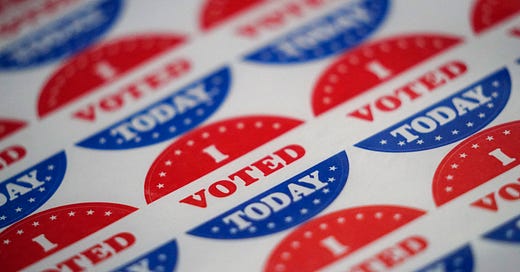Related highlights:
—
The Washington Post is going to have to provide receipts.
Absent hard evidence, readers have little reason to trust the paper’s anonymously sourced report this week alleging a supposed election fraud whistleblower has disavowed his own story.
“Postal worker recanted allegations of ballot tampering, officials say,” reads the headline to the Washington Post article, which has been shared widely by members of the press as proof that the allegations of voting irregularities in the 2020 election are overblown if not outright fabricated.
The article claims in its opening paragraph:
A Pennsylvania postal worker whose claims have been cited by top Republicans as potential evidence of widespread voting irregularities admitted to U.S. Postal Service investigators that he fabricated the allegations, according to three officials briefed on the investigation and a statement from a House congressional committee.
[…]
[O]n Monday, Hopkins, 32, told investigators from the U.S. Postal Service’s Office of Inspector General that the allegations were not true, and he signed an affidavit recanting his claims, according to officials who spoke on the condition of anonymity to describe an ongoing investigation. Democrats on the House Oversight Committee tweeted late Tuesday that the “whistleblower completely RECANTED.”
Unfortunately, the word of anonymous officials and a tweet written by a nameless Democratic staffer are the only evidence that the Washington Post provides to back its central premise.
Meanwhile, the whistleblower himself, Pennsylvania postal worker Richard Hopkins, insists that he recanted nothing.
"I am right at this very moment looking at an article written by Washington Post — it says that I fabricated the allegations of ballot tampering," Hopkins said this week in a video shared by James O’Keefe, founder of the right-wing activist group Project Veritas, which first brought the alleged whistleblower’s allegations to light.
The denial is dismissed summarily by the Washington Post, which treats the “recanted” claim as fact, rather than as the say-so of anonymous sources.
Hopkins, who originally remained anonymous but then agreed to out himself using his real name, adds, “I'm here to say that I did not recant my statements, that did not happen. That is not what happened. … I would like that the Washington Post recant their wonderful little article that they decided to throw out there."
It looks like we have a he said/she said standoff. The Washington Post reports Hopkins “recanted.” Hopkins claims he did no such thing.
When it comes to dueling narratives, we have to weigh the credibility of both parties. This is the part where the Washington Post’sslipshod and sometimes unethical reporting over the past four years comes back to bite it in the ass.
For starters, if there is anything that the press’s less-than-stellar handling of the Trump presidency has taught us, it is that we have greater reason than ever to question anonymously sourced reporting, especially when it involves nameless federal staffers. Further, when it comes to imploded Trump-era news stories sourced to anonymous government officials, the Washington Post specifically has its fair share of duds. So, right off the bat, the paper’s recent behavior is a mark against its credibility.
As for Hopkins, there are at least two compelling claims that work against his version of events, possibly casting doubt on his overall credibility.
First, a Pennsylvania newspaper reviewed 129 ballots and discovered that only two that arrived late were processed in Eerie, Pennsylvania, where Hopkins claims he witnessed firsthand election fraud. This directly contradicts Hopkins’s characterization of the problem as being rampant and widespread.
Second, Erie Postmaster Rob Weisenbach is on the record calling Hopkins’s allegation totally false.
“The allegations made against me and the Erie Post Office are 100% false made by an employee that was recently disciplined multiple times,” the postmaster said on social media. “The Erie Post Office did not back date any ballots.”
Those are two possible strikes against Hopkins’s credibility. We now have reason to question both the alleged whistleblower and the Washington Post.
Who to believe? Did Hopkins really recant?
For now, the wisest course of action would be to allow this story to play out on its own. Don’t get suckered into choosing a side, as so many activists and journalists already have. Let the investigators do their jobs.
Hopkins may be telling the truth. He may be lying. What we do know is that he has gone on the record to allege fraud and dispute the Washington Post’s reporting. This is certainly worth something, especially considering it is more than the Washington Post’s anonymous sources are willing to do.
The report may also be 100% accurate. Maybe Hopkins did recant. However, until the Washington Post provides something more substantial than “three officials briefed on the matter,” one would be wise to handle its coverage with a gigantic grain of salt. After all, this is the same news outlet that spent nearly three years relying on anonymous congressional and intelligence sources to promote a dead-end Russian collusion conspiracy theory that is almost certainly itself Russian disinformation. No one should take at face value reporting that is similarly reliant on nameless government officials, especially when the reporting comes from one of the many newsrooms that pushed the Russian collusion nonsense.
Fool me once and all that.




